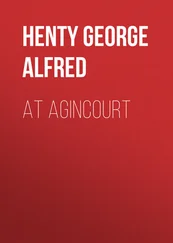They would not, however, abate one jot of their pretensions, and the whole of those demanded were at once brought out, including the ladies. They were put two and two on horseback, each horse escorted by four men-at- arms, and were carried to various prisons. The Duke of Burgundy now, with his usual craft, professed to be well satisfied with what the Parisians had done, and handed over to them the Duke of Bar and the other prisoners confined in the Louvre, for whose security he had solemnly pledged himself. The Parisians then obliged the king to appoint twelve knights, nominated by themselves, and six examiners, to try the prisoners and punish all found guilty, while the dukes were obliged to draw up a statement and send it to the University for their seal of approval of what had been done.
The University, however, to their honour, stood firm; and while king and nobles had quailed before the violence of the crowd, they declared in full council before the king that they would in nowise intermeddle or advise in the business; and that so far from having advised the arrests of the dukes and other prisoners, they were much displeased at what had taken place. The University was a power; its buildings were strong, and the students were numerous, and at all times ready to take part in brawls against the Parisians; and even the butchers, violent as they were, were afraid to take steps against it.
They foresaw, however, that the position taken up by the University might lead some day to an inquiry into their conduct, and therefore obtained from the king an edict declaring that all that had been done was done by his approval and for the security of his person and the state, and that the arrests and imprisonments were therefore to be considered and regarded as having been done for the true honour and profit of the crown, and that he accordingly commanded all his councillors, judges, and officers to proclaim that this was so in all public places. This was signed by the king in council, the Dukes of Berri and Burgundy, and several other nobles and ecclesiastics, by the Chancellor of Burgundy, and other knights attached to the duke.
Many nobles quitted Paris at once, either openly or in disguise, including many of the Burgundian party, who were to the last degree indignant at what was going on; for the mock trials were at once commenced, and many of the prisoners, without regard to sex, were daily either put to death in prison or drowned in the Seine. Some of the bodies were exhibited on gibbets, the heads of others were fixed on lances, and some of them were beheaded in the market-place. During this time Paris remained in a state of terror, bands of armed butchers parading the streets were loud in their threats as to what would be done to all who did not join heartily with them. None of the better class ventured from their houses, and the mob were absolute masters of the city. The leaders, however, maintained for the time a certain degree of order. For the time they were anxious to appear in the light of earnest friends of the king, and as carrying out in his name the punishment of his enemies. But many tumults, murders, and conflagrations occurred in the city, and the country in general soon perceived the real nature of their doings. It was known that the Orleanist forces were marching against the city. The Count d'Eu had left Paris and returned to his estates, where he raised two thousand men-at-arms and marched to Verneuil, where the Dukes of Orleans, Brittany, and Bourbon were assembled, with a number of great lords, among whom were the Counts of Vettus and D'Alencon, the king's sons. The former had made his escape from Paris, and brought letters from the Duke of Aquitaine declaring that he himself, with the king and queen, were prisoners in the hands of the Parisians.
All these nobles met in a great assembly, and letters were written to the king, his great council, and to the Parisians, ordering them to allow the Duke of Aquitaine to go wherever he pleased, and to set at liberty the Dukes of Bar and Bavaria and all other prisoners. Should they refuse to comply, they declared war against the town of Paris, which they declared they would destroy, with all within it except the king and the princes of royal blood. The Parisians compelled the king to send a friendly answer, putting them off with excuses, and in the meantime to despatch commissaries to all the towns and baronies of France assuring them that the trials and executions of the traitors had been fairly conducted and their guilt proved, and calling upon the country to take up arms to aid Paris against various nobles who were traitorously advancing against it.
During this time Guy remained quietly in his lodging with the four retainers, seldom stirring abroad. The men were now regarded by all their neighbours as honest carpenters, and they shared the indignation of the great body of the craft at this usurpation by the market men of the government of France, and at the murders of knights and ladies that were daily taking place. At present, however, the opponents of the butchers dared not resort to arms. So great had been the fear that they excited that most men, however much at heart opposed to them, had been constrained to appear to side with and agree with them, and as there was no means of knowing how could be counted upon to join the carpenters were these to take up arms, the latter could not venture alone to enter the lists against the armed host of the other party.
One evening Guy, who had not been near the Italian's for over a fortnight, received a message from Dame Margaret to say that she wished to speak to him, for that she had determined, if any way of escape could be decided on, to quit Paris, and to endeavour to make her way to Villeroy. He was greatly pleased at the news. He had himself ventured to urge this step on the day after the Duke of Bar and his companions were seized, pointing out that it was evident that the Duke of Burgundy had neither the power nor the inclination to thwart the Parisians, and that although both parties were now nominally hostile to the English, neither were likely, at so critical a time, to give so much as a thought to Villeroy. Dame Margaret had agreed to this, but considered the difficulties of getting out of Paris and traversing the intervening country were so great that she preferred to wait until some change took place in the situation of Paris. But it was now too evident that the changes were entirely for the worse, and that if discovered the butchers would undoubtedly add her and her children to their long list of victims.
His companions were equally glad when Guy told them the news.
“The sooner the better, Master Guy,” Long Tom said. “I own that I should like to have a tussle with these rascals before I go; their doings are so wicked that every honest man must want to get one fair blow at them. Still, I don't see any chance of that, for although the good fellows round here grumble under their breath, there does not seem any chance of their doing anything. There is not an hour passes that my heart is not in my mouth if I hear a step on the stairs, thinking that they may have found out where my lady is hidden.”
Guy had just turned into the street where the astrologer dwelt when he heard loud voices from a little group in front of him. Four armed men, whose white hoods showed that they were one of the butchers' patrols, were standing round a slight figure.
“It is well you stopped him, comrade,” a voice said, that Guy recognized at once as being that of Simon Bouclier. “I know the young fellow; he has been to me many a time on the part of a knave who professed to be an agent of Burgundy's, making inquiries of me as to the doings in our quarter. I have found out since that the duke employed no such agent, and this matter must be inquired into. We will take him with us to the market; they will soon find means of learning all about him and his employer.”
Читать дальше












